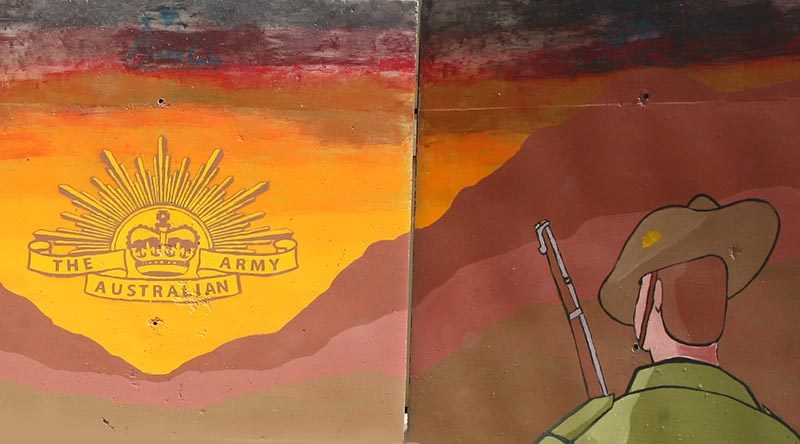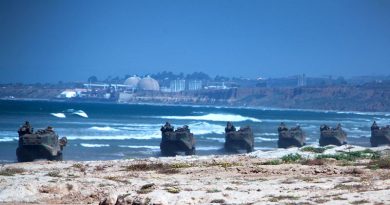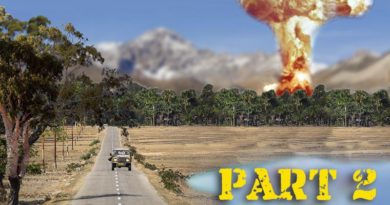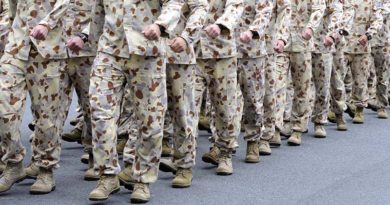OPINION PIECE – John Bale on IGADF Afghanistan Inquiry
Share the post "OPINION PIECE – John Bale on IGADF Afghanistan Inquiry"

BY JOHN BALE
Justice Paul Brereton’s long-running war crimes inquiry into Australian Special Forces in Afghanistan is now finalised.
Prime Minister Scott Morrison has foreshadowed that the report “will be difficult and hard news for Australians“.
I fear for the legacy this report may leave for the tens of thousands who served in Afghanistan, the wounded, the families and friends of the 41 killed. What will our nation think of us?
Michael Fussell and I went to school together in Armidale, NSW, and joined the Australian Army in 2002. On 27 November 2008, he was killed by an improvised explosive device in Oruzgan province, Afghanistan. His death spurred my wife, a good friend and I to start Soldier On, an organisation that supports wounded veterans and their families.
To his family and his mates, Michael will never just be a number. We want to know that his loss meant something. We want to know that the actions of a few who forgot our values will not tarnish his sacrifice. Our Afghanistan veterans, many of whom we supported through Soldier On, must be able to keep their heads high when they talk about their place in our military history.
We fought for something worthwhile – our legacy must reflect this.
My father’s war, Vietnam, split the deep connection that Australia had with its military since the beaches of Gallipoli. The ramifications for this disintegration had long-term affects on the Australian Defence Force, especially the veterans who fought in that war.
Vietnam veterans have horrendous rates of post-traumatic stress disorder, suicide, alcohol abuse, divorce, domestic violence and homelessness. Many died younger than they should. Their children had much higher rates of mental-health injuries and suicide than the Australian population.
For Vietnam veterans, their war made them outsiders.
Our valiant efforts to support the people of East Timor choose self-determination and eventually independence reset the relationship between Australians and their defence force.
My war – Afghanistan, in which I played a tiny part – has a unique relationship with the Australian people.
While the Afghanistan War was originally popular, the Iraq War and the length of time we stayed in Afghanistan meant the Australian people lost faith. But even with the absence of a coherent strategy, while many might not have supported the war, we at least supported the veterans and our defence force.
The political negotiations between Kabul and the Taliban and the IGADF Afghanistan Inquiry report threaten to affect our memory of the Afghanistan War and the veterans who fought there. It may erode the ADF’s almost sacred position in our society. As all Vietnam veterans can attest, being rejected by your community has real implications.
‘Abu Ghraib’ and ‘My Lai’ are synonymous with the wars in which they were fought and highlight how war crimes can erode the relationship between a nation and its armed forces and poison the legacy for all who fought in them.
How a small number of Australia’s Special Forces committed these alleged war crimes will be the focus of much soul-searching, and many books and speeches. But the more immediate questions that will help protect the legacy of most Afghanistan veterans is – what good did we actually do? What good were we trying to do?
Our involvement in Afghanistan was our first major war since Vietnam. While we learned many lessons, not all were the right ones. This was never more the case than the role of the media in wartime. Vietnam taught the military to limit the media’s accessibility in an attempt to shore up support back home. Between the Vietnam and Afghanistan wars, the US had recognised the importance of keeping its country in greater touch with its efforts overseas.
The lack of Australian stories from Afghanistan now haunts our ability to show the overwhelming good done and the professionalism and care in which it was carried out. The ledger should be full of stories about reconstruction, training, mentoring and the positive impact made by thousands of Australians.
However, the cupboard is almost bare. The restrictions on media were so tight that we have close to nothing to show the good we did, or tried to do. We are left with retrospectives and carefully crafted PR spin.
The Australian people have a right to be informed of what their defence force does, especially in wartime. This accountability builds transparency and transparency builds trust. While militaries can never be fully transparent, they cannot be opaque.
The Australian people are not naive enough to think any war, let alone an insurgency, will be simple. While militaries often struggle to communicate their complex missions, many journalists build a career doing just that. In failing to let the ADF tell its Afghanistan story as it happened, we robbed ourselves of the opportunity to easily show the nation that these alleged war crimes were but the actions of a few.
The stories we do have in abundance from our time in Afghanistan are from our wounded. They show the fortitude and values that truly underpin military service. Their right to tell their stories was hard-fought. But their stories will help regain the trust of the Australian people. They will help show what they and their families sacrificed to help give a war-ravaged country the chance to be free, educated and prosperous.
However, with allegations of war crimes soon to be unveiled by Brereton’s report, we need to encourage all who have served in Afghanistan to tell their story. All must speak and write about the positive impact they made, or intended to make, while representing their nation – and reflecting its military’s values.
Afghanistan veterans cannot let those who forgot our country’s values write our narrative. We have an opportunity to help write a legacy that maintains trust and our position in our rich military history. Positive stories far outnumber those soon to be revealed by Brereton.
We ask that you give us an opportunity to tell these stories – to show we did, or tried to do, something worthwhile in a manner that can make us all proud.
The place in society of a generation of veterans relies on it.
John Bale is a former Australian Army officer who served in Afghanistan.
He is a co-founder and managing director of Fortem Australia
and was a founder of Soldier On
A version of this opinion piece by John Bale
was originally published in The Australian
newspaper on 22 August 2020.
John Bale gave us permission to
re-publish his opinions here..
SUBMISSIONS: Any veteran wishing to tell their story and enhance the reputation of those who did us proud, may submit them via the ‘Write for us‘ button in the main menu (above), or write directly to editor@militarycontact.com
Previous first-hand accounts published by CONTACT include this one by SASR Sergeant Troy Simmonds – the most read story we ever published.
CONTACT Editor Brian Hartigan travelled to Afghanistan and Iraq twice each, to report directly from the field. Find the report from his first trip here – and the second trip here.
There are several other excellent stories in CONTACT magazine print version, which have not yet been digitised for our archives (a project we could use some help with 😉 ).
FILE PHOTO: T-wall art at Tarin Kot, Afghanistan.
.
.
.
.
.
.
.

.
.
Share the post "OPINION PIECE – John Bale on IGADF Afghanistan Inquiry"






There is a command structure and if there’s a problem at the bottom and then it needs to be rectified at the top end
The general public and the dreaded media, seem to be jumping to conclusions before anything has been organised. The whole thing should not have been aired until actual charges had been laid. That way the whole of the Defence force would not be under suspicion as it is today.
Well said John – I agree entirely with what you have said, only bit I find contentious is the bit about Vietnam. “My father’s war, Vietnam, split the deep connection that Australia had with its military since the beaches of Gallipoli. The ramifications for this disintegration had long-term affects on the Australian Defence Force, especially the veterans who fought in that war”.
Any thinking person from that era knows it was not the war in Vietnam that split Australia from the military, it was the carefully constructed campaign waged against the Government and the Military of the day, by the International Communist Party in Australia, and the American Anti War and Peace Movement that infiltrated Australian politics, the Public, and universities.
Enough said on this tiresome subject.
This point needs to be stated fully in the article.
The PM needs to step in and quash this immediately. The good work of our men and women of the ADF and special forces in particular will be smeared by lies and half truths from a devious Taliban and their supporters. I don’t expect much support from our gutless politicians and the even more gutless public service who now appear to run our armed forces.